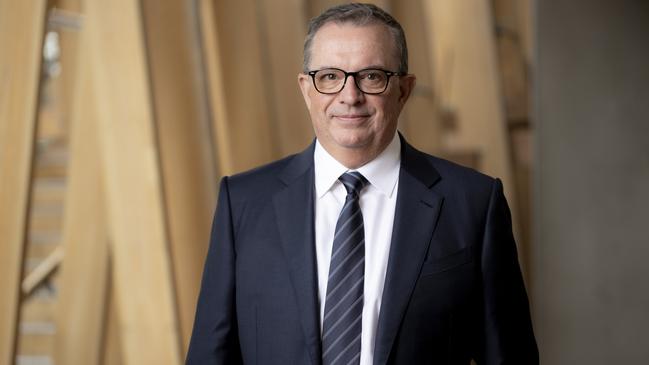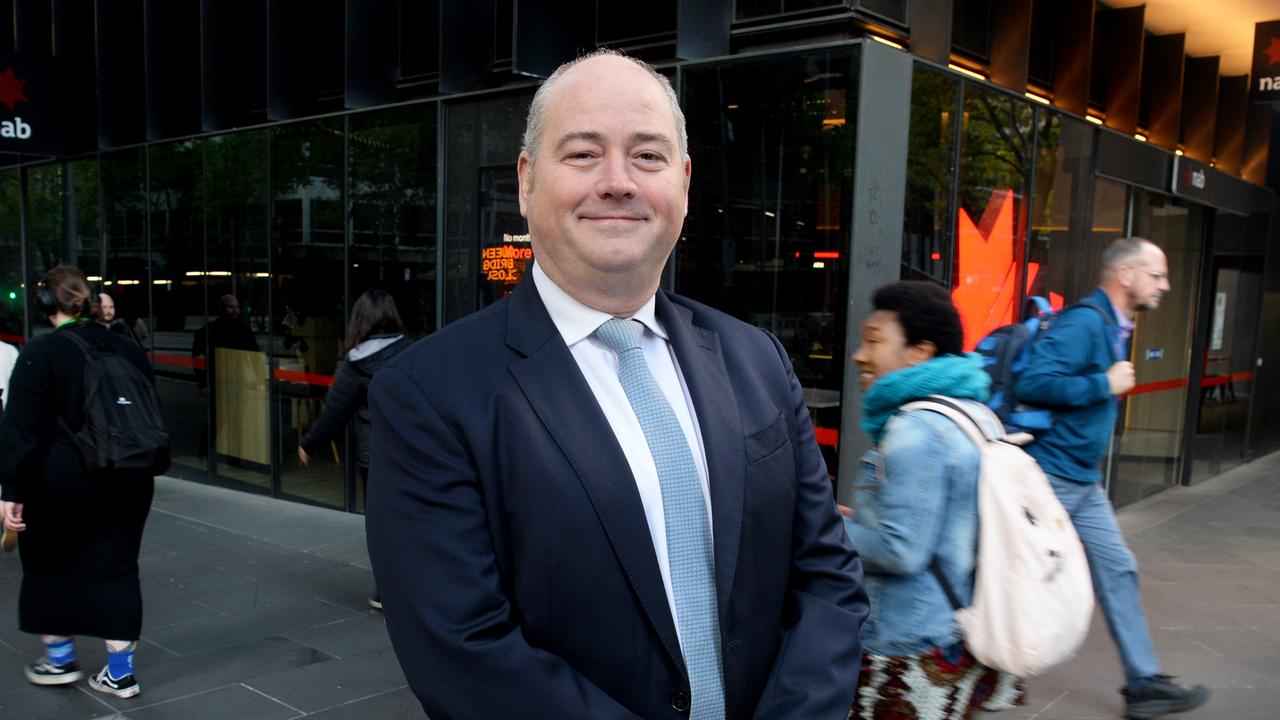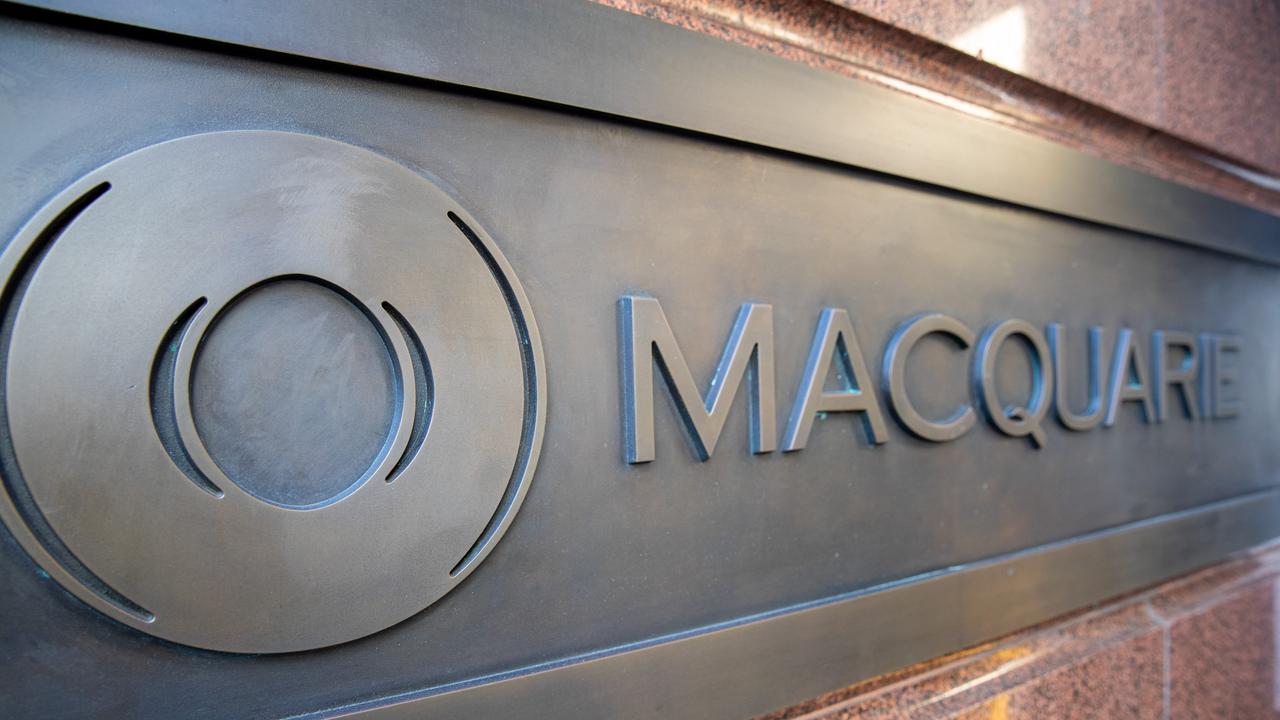Insignia’s chief executive confident his company can sweep aside giants Macquarie and Westpac
Insignia Financial boss Scott Hartley says his business can push aside Macquarie Group and Westpac to take the mantle as Australia’s biggest player in the platform sector.

Insignia Financial chief executive Scott Hartley wants the wealth firm to elbow aside Macquarie Group and Westpac and take the mantle as the nation’s biggest player in the platform sector, as he outlined a strategic plan to lift performance and slash costs.
Speaking after an investor day, Mr Hartley told The Australian that, while Insignia was ranked third in the platform market, he wanted it to be the largest player in the sector over the medium to longer term.
“My ambition for the wrap (platform) business is to become number one, not two or three,” he said.
“We are now in a position where we can get on the front foot, where our sales teams can orientate to promote the platform.”
Mr Hartley said Insignia’s teams had been focused on retaining existing financial advisers and migrating technology as it bedded down acquisitions, including that of MLC. But the focus would shift to developing new features and functions for the platform.
Insignia cited Plan for Life data that showed it had $94bn on wrap platforms at June 30, trailing Westpac’s BT at $135bn and Macquarie at $137bn. Netwealth, HUB24 and AMP round out the top six players.
A platform holds investments, such as managed funds and shares, in one place and is used by financial advisers and individuals for centralised reporting. Back-office services and tax reporting are also often provided by platforms.
Insignia – formerly IOOF – revealed a new strategy blueprint across its four business lines on Wednesday, following a challenging period for the company that included it being plagued by adviser and fund outflows.
The strategy refresh comes after Mr Hartley took the CEO reins in March, following a stint leading AMP’s wealth division and prior to that running Sunsuper.
The new strategy is targeting $200m a year in net cost savings by 2030, as Mr Hartley seeks to simplify Insignia’s operating model, rationalise consumer-facing brands and increase the use of artificial intelligence.
Mr Hartley said Insignia wanted to be Australia’s “most efficient” wealth management company by 2030.
But investors focused instead on Wednesday on taking profits, and Insignia’s dividend policy.
The stock slid 4.8 per cent to $3.17, outpacing a 0.75 per cent drop in the S&P/ASX 200.
A decision by Insignia’s board to pause paying dividends was not well received by investors in August, and at Wednesday’s investor briefing the company indicated payments would not be reinstated in the first half of this fiscal year.
Analysts at JPMorgan used the investor day to ask Insignia’s executives about the company’s flexibility in capital management and for any rough timing for the reinstatement of the dividend.
“We are not talking about when it (dividend) will be reinstated … the first half 2025 we are saying we think it’s unlikely,” said David Chalmers, Insignia’s chief financial officer.
“The major driver really is going to be markets, so we’re not going to make any commitment beyond that period, it’s just too far away for us to lock in on that now.”
Mr Hartley reiterated that it was “a pause” in dividend payments rather than a shift in policy.
Insignia also confirmed that MLC would be its go-forward consumer brand in the wealth sector, while Shadforth and Bridges would be its financial advice brands.
That is a marked consolidation from about nine brands in the Insignia stable previously, which Wednesday's presentation labelled a “fragmented brand structure”.
Insignia has about 200 employed advisers and the presentation also delved into industry issues as adviser numbers have tumbled since the fallout of the Hayne royal commission.
There were about 15,600 financial advisers across the industry last year, almost half the 28,000 in 2018.
Insignia’s presentation showed it was currently taking the company’s advisers up to 20 hours to provide a customer a statement of financial advice. Mr Hartley wants to up-end processes in this area and is targeting higher revenue and customer numbers per adviser, alongside a lowering of costs across the business.
The industry is also awaiting the government’s latest legislatory response to lawyer Michelle Levy’s reform document, which is expected to assist in making advice more accessible.
“I would expect that we’ll see legislation pass parliament early next year on this particular tranche,” Mr Hartley said, noting bipartisan support to deal with the issues in the financial advice sector.
Insignia posted a loss of $185.3m for last financial year, as higher remediation payouts and transformation and separation costs hit its bottom line. Underlying profit after tax, which stripped out one-off items, rose almost 14 per cent.




To join the conversation, please log in. Don't have an account? Register
Join the conversation, you are commenting as Logout